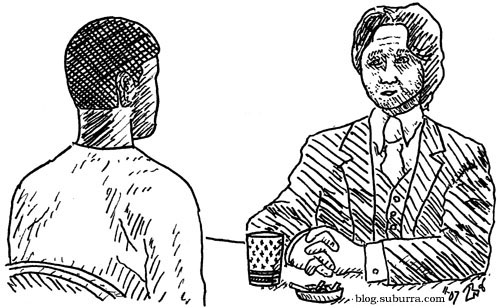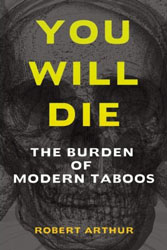American Gangster: Denzel & Crowe Discuss the Drug War
Posted: November 23rd, 2007 | Filed under: drugs, heroin, legalization, opiates | 6 Comments »
“That’s the way it is.”
American Gangster is about the New York City heroin trade in the early 1970s. It is based on the real-life adventures of heroin kingpin Frank Lucas (played by Denzel Washington), and police officer Richie Roberts (played by Russell Crowe). The American columnist, George Will, has called its humane portrayal of Lucas a “manipulation of viewers.” By accurately describing Lucas’s accomplishments Will writes that American Gangster,
entices viewers into the moral vertigo of forgetting the human carnage among users of the high-quality heroin that Lucas’s organizational skills enabled him to sell cheap.
Will then praises the movie for realistically showing the “suppurating needle sores” and the heroin addicted mothers passing out on filthy mattresses next to their sobbing babies.
Will, like those who only know heroin through mainstream media portrayals, cannot see past the needles and addicts. If Hamilton Wright had not hoodwinked the American Congress into criminalizing opiates in 1915 desperate heroin junkies would not exist. Opium would merely be smoked like it still is in numerous parts of South Asia. (Heroin is a more chemically potent form of opium.) It is the war on drugs that has forced the cost of opiates so astronomically high (see LINK) that those unfortunate enough to become addicted to it (just like with alcohol, a small percentage of total users LINK) cannot afford to lose any of it through the smoking process. Because of this, they must inject it directly into their veins.
Whereas Will thought American Gangster was manipulative in portraying a drug dealer as a human being, the actual manipulation occurred with the multiple gratuitous shots of needles hitting home. Lucas’s commitment to pure product, his “Blue Magic” brand, could enable people to smoke heroin and avoid the debilitating effects of injecting heroin cut with a potpourri of street substances. (Regular heroin usage is actually physically harmless. It is the side-effects of criminalization that make it dangerous. LINK)
It would also be interesting to know if Richie Roberts’ partner actually died of heroin overdose or if it was a “morality lesson” added to the script. (Apparently a lot was added. LINK) Movies and television regularly kill every heroin using character with an OD despite the mathematical absurdity of this.
In the movie, Roberts says to Lucas:
I got hundreds of parents of dead kids, addicts who ODed on your product and that’s my story for the jury. That’s how I make it all stick. This man murdered thousands of people and he did it from a penthouse driving a Lincoln.
Only someone who believes the heroin death rate portrayed on television and in the movies can hear the “thousands of people” line without laughing. In 2003 it is unlikely even 4,000 people died of any type of opiate overdose (e.g. heroin, morphine, OxyContin) in the entire country. When Nixon was declaring that drugs were a national emergency in the early 1970s more Americans were dying from choking on food or falling down stairs than from illegal drugs.
Politicians and government bureaucrats could save thousands of lives by ending the inane drug war that declares otherwise law-abiding drug users and drug dealers as public enemies. Legalizing heroin would make heroin overdoses as rare as alcohol overdoses. Legalizing would also end the countless deaths caused by drug turf wars. Whereas the government could make a difference, Lucas could not. As Lucas and Roberts discuss in the movie:
Lucas: Do you really think that putting me behind bars is going to change anything on the streets? Them dope fiends are gonna steal it. They gonna steal for it. They gonna die for it. Putting me in or out ain’t gonna change a thing.
Roberts: Then that’s the way it is.
Lucas: That’s the way it is.
Sources:
- Robert Arthur, You Will Die: The Burden of Modern Taboos (2007). LINK
- George Will, “Another Mob Hit,” 8 Nov. 2007. LINK


